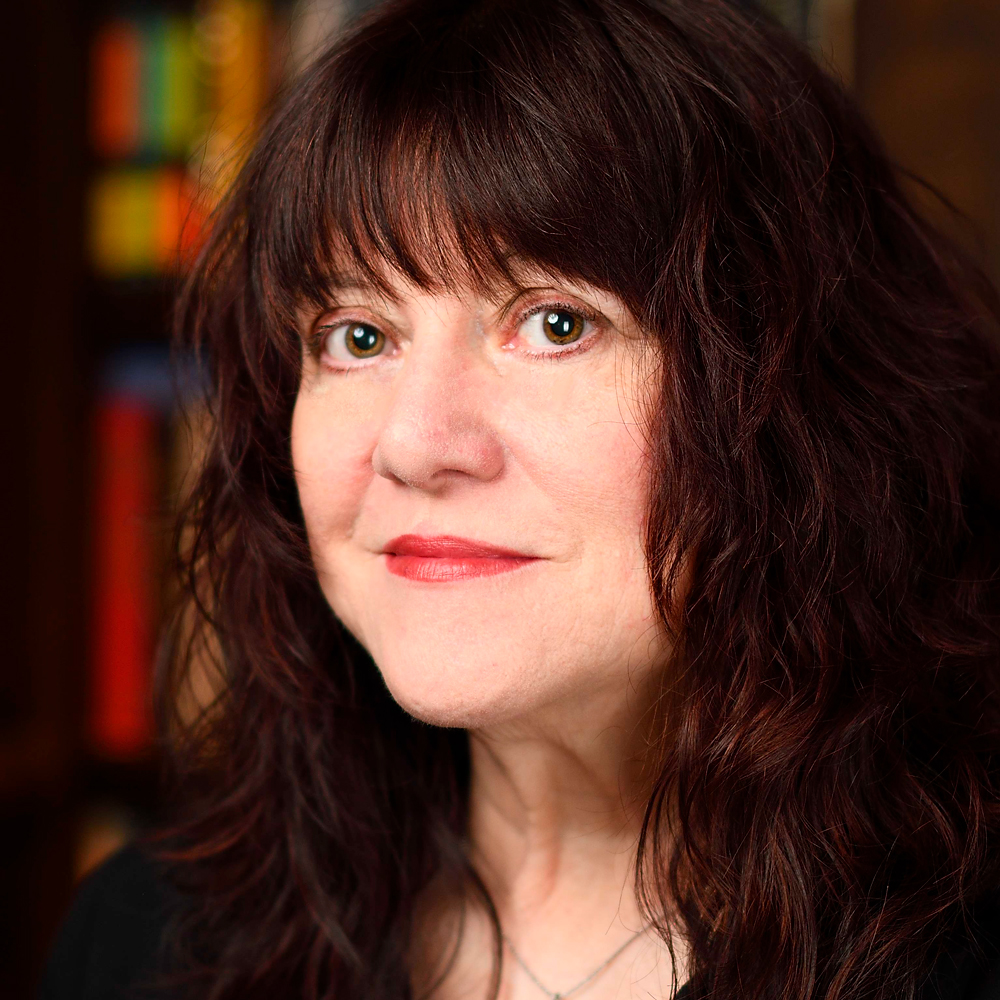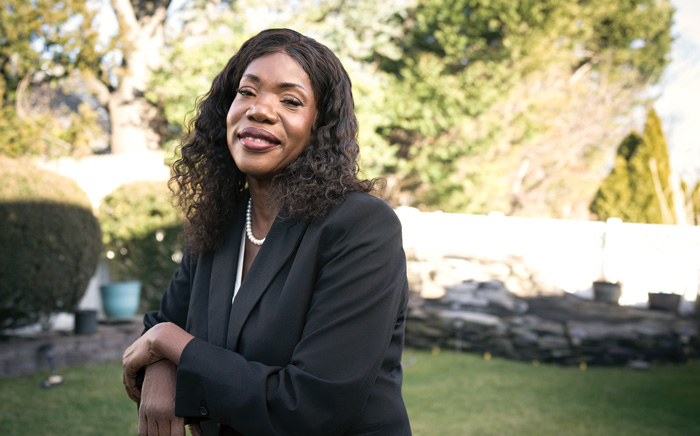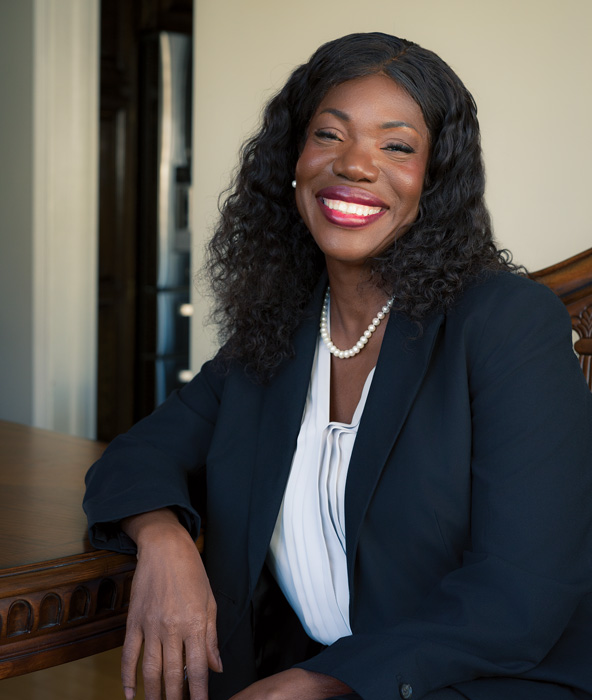
Change Agent
From the laboratory to the C-suite, food safety scientist Theo Morille has aspired to change and has inspired change throughout her 35-year career.
Article Content
Growing up on St. Lucia in the Caribbean Islands, food industry executive Theo Morille never considered that her career path might lead to food science, much less to a series of leadership positions affording her opportunities to influence change.
“Growing up in the Caribbean, I had no clue about food science or food safety,” says Morille, who notes that St. Lucia might be one of the smallest of the region’s islands but is the biggest on education, boasting two Nobel Laureates among its citizens. “There is a lot of emphasis on careers in nursing, banking, or education. I migrated to the U.S. for college with the intention of going into medicine.”
But as serendipity would have it, pre-med student Morille was encouraged by a friend to check out a recruitment table at a job fair where General Foods was looking to hire food scientists. The interview went well, and she was offered a summer internship where her role was to work on identifying lactic acid bacteria that could be used as natural preservatives in foods. Morille says she was so fascinated by the different aspects of food science that she changed her mind about going into medicine.
“Like my grandmother used to say, I went from people doctor to food doctor,” Morille says, with a trademark smile. “And 35-plus years later, as you can see, I’m still in it. I’m still excited about it.”
That excitement has marked Morille’s three decades-long career as a food safety professional, which has taken her from lab tech to C-suite influencer. She got her start in the Microbiology Group at Kraft Foods in Tarrytown, N.Y., where she rose to the position of associate program director and manager, microbiology and food safety with Kraft/Mondelez International. Later, as vice president, global food safety and quality with Kellogg, Morille led multiple global functions, including food safety, quality, quality innovation, and ingredient quality. Today, she is founder of Theodora Ventures, a food safety consulting firm based in New York.
Morille continues to share her excitement and food safety science know-how as a board member for several organizations and food companies, including a St. Lucia-based nonprofit called Helen’s Daughters, which supports rural women in the Caribbean with the use of adaptive agricultural techniques, capacity building, and improved market access.
“What excites me the most about this profession is the ability to synthesize the complex interconnectivity of manufacturing, regulatory, academia, and public health food safety, and just trying to put those puzzle pieces together to enable a safe food supply,” Morille adds. “And it continues to be exciting. No day is the same. Action plans or to-do lists don’t exist because it’s always evolving, it’s always dynamic. And my career in food safety has been as dynamic and as evolutionary as the discipline.”
Food Technology spoke with Morille to chat about key learnings from her journey as a food safety professional and how she learned to be a change agent.
This year marks the 30th anniversary of the Jack in the Box E. coli O157:H7 outbreak, which arguably gave rise to a modern professional title: food safety scientist. What impact did that incident have on food safety as a discipline?
I was working in the lab [at Kraft Foods] when the outbreak happened and for me, that was the first major exposure to food safety and foodborne illness [making] the news. Suddenly, everyone was talking about food safety–in industry, in government, at the dinner table. At that time, we knew about food poisoning, but it wasn’t top of mind. In industry, scientists like me in the microbiology group did research, conducted finished product testing, and worked on food safety and quality policies for product development applications and the production floor in the processing plants.
So, food safety meant writing policies to tell the product development or operations teams, ‘Do this,’ ‘don’t do that.’ Early on, when I was writing policies in the lab in my white coat, I had never been to a plant and never seen R&D. After Jack in the Box, we really did evolve into food safety scientists, and we looked at all aspects of what we were doing more proactively and prioritizing food safety in the business, not just issuing policies or conducting testing.
What have been some key points of learning during your 35-year career in food safety?
One major learning point in my career was collaboration and bringing others along to ensure successful adaptation, implementation, and outcomes. At one point in my career, I was responsible for the development of microbial policies and testing methods to be implemented by food processing plants. This was done based on our technical knowledge, with no or minimal input or feedback from the users of the policy, meaning the plant teams. This strategy led to very low adoption of the policies–a fact brought to light during an audit at one of the facilities.
I remember one of the auditors asking the plant manager to show them the methods that were used to conduct the required testing. He took a huge manual off the shelf and was proud that it was just as new as when he first received it. I later followed up with the individual to understand why he was not using the policies. He said that the policy was too complicated, the intent of the policies was not clear, and that [the operations team] were not given an opportunity to participate in the policy development. This led to a step change in how we developed policies. The new process included providing the plants with an opportunity to review the policies and providing feedback on the most effective method to ensure successful implementation of the policies during their development prior to finalization.
I also learned how to influence without authority, to persevere, and to demonstrate business acumen during my career. As my scope of work expanded, I started to interact with product developers on the Innovation team. Microbiology and Food Safety continued to be viewed as a technical function by Innovation–and an impediment to growth. M&FS input often happened during plant trials or production. Any identified risk at this point resulted in delays and frustration by the business, further promoting the mindset of the food safety team as an impediment to growth.
As the company continued to innovate, developing minimally processed products, it was imperative to find more efficient ways to impact change up front in the development process to minimize delays in the timeline. I was charged with working with R&D to incorporate food safety and microbial criteria during the early phase of the development process. Creating that change was more challenging than I expected. After years of [being] unsuccessful, I was about to give up when one of my allies in R&D reached out to me and offered to provide me insight in the product development process. I was exposed to the ideation phase, marketing meetings, and started to hone my business understanding and was able to start demonstrating how incorporating microbial and food safety criteria at this early phase would promote speed to market. This exposure provided me the ability to influence key stakeholders and bring others along.
Did you learn anything that surprised you?
Yes, humility. Here I was thinking I was great at my job as a microbiologist because I had done some product development. I knew microbiology and I had built credibility with the processing plant team as a technical business partner. I applied for a job in Quality, but I did not get the role. The hiring manager told me the reason I did not get the job was because I did not have the business depth required to influence across multiple functions. I was still being viewed as an enforcer of policies.
Of course, I disagreed with him and believed I had what it took to do the role. I asked him to give me Quality responsibility for one low-risk product. I offered to do this as a lateral along with my current role. In doing so, I quickly recognized that I was not equipped for the scope of work and had to humble myself.
I realized that I needed guidance if I were to be successful. I asked an experienced quality manager to be my mentor. He was able to guide me on getting the tools needed to influence a different set of stakeholders, both at the plant and business levels. I started learning how to make business decisions without complete data and using consumer complaint data to gain insights. I had to learn to influence, utilize my technical knowledge to quickly add value, and continue to build credibility and demonstrate that I could be flexible and work across functions.
How have your learned skills prepared you for the executive level positions you’ve held?
The most significant growth opportunity came when I was offered a senior director role with another organization. I was hired to turn around the food safety culture in a very short time. In this role, I needed to apply all my previous learnings, including my technical expertise, my experience in product development, my experience and credibility working with regulators, business acumen and influencing. These were all critical in getting some quick wins and helping establish credibility as a team player.
You’ve broken the glass ceiling during your career and supported many others in doing that as well. Do you think there are greater opportunities for women and minorities in the food industry today?
As an African Caribbean woman, achieving the position as a food safety executive for one of the world’s leading global food companies required having mentors and advocates. Growing up in the Caribbean, I did not experience racism as a barrier to success. It was not until I migrated to the United States that I experienced racism. Growing up, I was always told that to be successful I needed to have an education and be the best at whatever I did. Entering corporate America, I quickly learned that was not enough. I remember, asking one of my managers early in my career, why I did not get tap on the shoulder for the opportunities that my colleagues were given. He said because no one knows you. I did not understand as I said hello to everyone in the organization.
The problem was that I never made time to get one-on-one with key decisions makers in the organization. In part, this was due to my upbringing. In the Caribbean, one-on-one interactions were seen as asking favors versus letting one’s work speak for itself. My manager informed me that if the decision makers do not know me it is more difficult to think about me when opportunities are being discussed. Getting myself out of the lab and talking to leaders who did not look like me was way outside of my comfort zone. However, I sought the help of some of my trusted colleagues and a mentor on how to go about getting leaders to know about me. Those experiences provided critical insights on the thinking and expectations of key leaders, and it also gave them an opportunity to know me beyond my role as a technical expert. Continuing to build relationships was critical to my career success.
During my career, I was always the only woman, the only Black person, or the only person with an accent different from my colleagues. I was often viewed as the administrative assistant. As the only one of me in the room I had to find ways to have a voice when I was invited to the table, not just for me but for others like me who did not have that opportunity. I had to ensure I was able to participate in the broader business discussion not just on food safety issues.
Based on my experience I vowed to advocate for others who did not have a voice. Being at the table provided me an opportunity to bring a diverse point of view that is not obvious to like-minded leaders. I remember the first time I participated in a year-end senior leader calibration process. At the end of the process, I noticed that people of color, which made up a small percentage of the company’s leadership population accounted for a higher percentage of the people with the lower ratings. I waited to see if any of the other leaders would call out that trend. Unfortunately, no one did until I called it out. Fortunately, it led to a discussion on the unconscious bias in rating individuals and ways to ensure that as leaders we are aware of those biases.
What excites you about the future of food safety?
I think we still have work to do, but food safety is evolving [and] as a group within the company structure, we don’t have to fight so much to be seen as enablers who do help grow the business. In terms of science and technology, the advances that we’re making in learning how microorganisms behave and evolve and how they can impact our food is exciting. It might seem that the industry has more recalls as a result, but rapid [microbiology] methods and whole genome sequencing are so sensitive that we can detect a lot more and even identify where in the plant a pathogen has survived. When technology exposes potential areas of food safety risk, we can take action to address them to the benefit of both the company and consumers, so that is exciting.
I am excited that food safety is being increasingly adopted by universities as a discipline. What I’d like to see in those university programs is curriculum that incorporates both the science with an education about how to be technical business partners. For an industry career, your technical expertise is your price of entry but to be successful, food safety professionals need to come in as technical business partners who can also deliver the bottom line for a business.
Do you have any advice for young professionals?
I would say recognize that you are the expert. You can teach the company how to incorporate food safety measures, but you must demonstrate your business understanding to enable you to influence. If you are at the table and just waiting for your turn to talk, you won’t get invited back. The ability to talk about food safety in terms of production efficiencies, ROI, sales, and its impact on business outcomes creates more space for you to be seen and invited as a true value-added partner.
I suggest this because although we’ve made improvement in that space, that perception of food safety as a cost center still lingers. So, we need to continue developing our new professionals by continuing to develop the technical aspects [and by] expanding the business scope. And I would recommend that food scientists take a business course. I wish I had!
Omnivore Podcast
Food Technology's Julie Larson Bricher chats with microbiologist and food industry executive Theo Morille to discuss key food safety learnings from her 35-plus year career that’s taken her from the lab to the C-suite.
Vital Statistics
Experience: Vice President, Global Food Safety & Quality, Kellogg; Senior Director of Global Food Safety and Sanitation, Kellogg; Associate Program Director and Manager, M&FS, Kraft Foods/Mondelez International
Education: BS, Microbiology, The City College of New York; MS, Food Microbiology; LIU Brooklyn
Expertise: Control of foodborne pathogens in foods and the environment; food safety systems development; co-manufacturing and ingredient supplier food safety and quality strategy; risk management, mitigation, and communication; product crisis turnarounds
Boards & Councils: Board member, Tuskegee University Food Safety & Nutrition Board, Helen’s Daughter’s, and Sargento Foods Technical Advisory Board. Past member and leader with Safe Supply of Affordable Food Everywhere (SSAFE), University of Georgia Food Safety Board, and Global Food Safety Initiative (GFSI)
Noteworthy: Advocated and secured funding for the Michigan State University Center for Research on Ingredient Safety; Food Safety Magazine Distinguished Service Award (2019)
Favorite Quote: “Give a man a fish and you feed him for a day. Teach him how to fish and you feed him for a lifetime.” – Lao Tzu, Chinese philosopher
LinkedIn: ift-linkedin.com/theodora-morille










